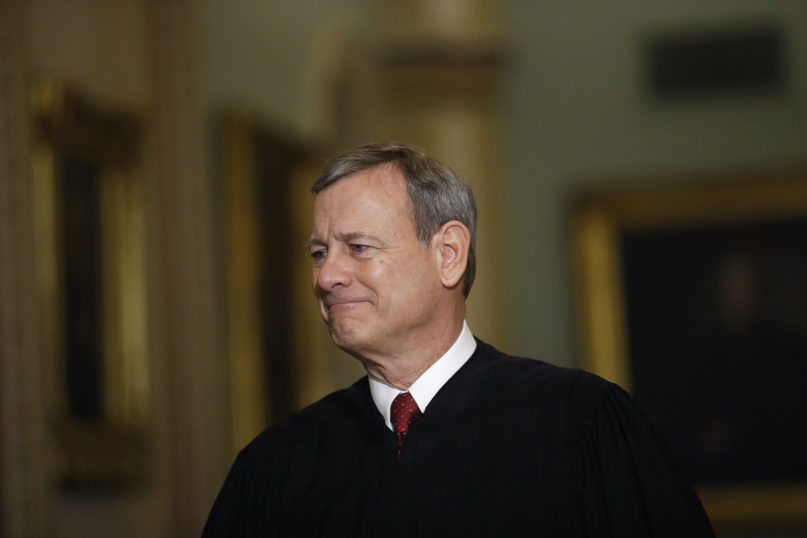(RNS) — On May 31, just before protests over the killing of George Floyd pushed COVID-related news onto the back burner, the U.S. Supreme Court declined to grant an injunction sought by a Pentecostal church in California to suspend Gov. Gavin Newsom’s requirement that in-person worship be held to 25% of building capacity or 100 attendees.
The court was narrowly divided 5-4, with Chief Justice John Roberts siding with the four-member liberal wing in a written concurrence opposed by a written dissent from Justice Brett Kavanaugh.
Since restrictions on in-person worship have eased by now in California and other places around the country, this might not seem like a big deal. But by siding with the government in the hot religious liberty issue of the past few months, Roberts makes clear that his vote is no sure thing for the conservative side in the religious liberty cases the court will decide in the coming weeks.
Arguing that California’s guidelines “appear consistent with the Free Exercise Clause,” Roberts wrote:
Similar or more severe restrictions apply to comparable secular gatherings, including lectures, concerts, movie showings, spectator sports, and theatrical performances, where large groups of people gather in close proximity for extended periods of time. And the Order exempts or treats more leniently only dissimilar activities, such as operating grocery stores, banks, and laundromats, in which people neither congregate in large groups nor remain in close proximity for extended periods.
For his part, Kavanaugh ignored Roberts’ comparisons and simply asserted that by allowing people to frequent those places which Roberts judged dissimilar, California was unconstitutionally discriminating against religion.
Kavanaugh’s dissent, which was joined by Justices Clarence Thomas and Neil Gorsuch, is a good example of the spiritual libertarianism rampant on the right these days. It follows the conservative Christian Legal Society’s recent claim that “the First Amendment right for religious congregations to assemble is unalienable and fundamental” — effectively proof against any government restriction.
By contrast, Roberts emphasizes the government’s particular responsibility for guaranteeing public safety, stating, “The precise question of when restrictions on particular social activities should be lifted during the pandemic is a dynamic and fact-intensive matter subject to reasonable disagreement.”
How far Roberts is willing to let secular law supersede religious desire will shortly be on display in three Supreme Court decisions.
In Espinoza v. Montana Department of Revenue, several low-income mothers were denied state scholarship funds for use at a Christian school based on a state constitutional prohibition of “direct or indirect” public funding of religiously affiliated educational programs. The court will decide whether that prohibition violates the U.S. Constitution.
In Little Sisters of the Poor and Saints Peter and Paul Home v. Pennsylvania and New Jersey, two states are contesting a Trump administration rule allowing broad religious and moral exemptions to the Affordable Care Act’s mandate that health insurance policies provide women with free contraceptive care. The court will decide whether the states are entitled to challenge the rule and, if they are, whether the administration acted lawfully in establishing it.
In Our Lady of Guadalupe School v. Agnes Morrissey-Berru, a teacher at a Catholic school brought an age discrimination suit, claiming that she was not a “minister” and therefore that the school was not entitled to claim the “ministerial exception” recognized unanimously by the court eight years ago in Hosanna-Tabor Evangelical Lutheran Church & School v. EEOC. The court will decide whether to limit the reach of the exception.
If there’s anywhere that Roberts is likely to show his reluctance to roll over for religious prerogatives, I’d say it’s in Little Sisters. There, the present administration is seeking to weaken the power of the Affordable Care Act to ensure comprehensive health coverage for Americans.
Roberts has stood up for the ACA before. We’ll soon find out if he’ll do it again.






